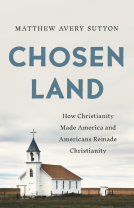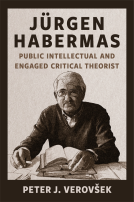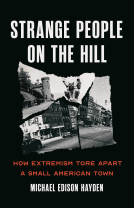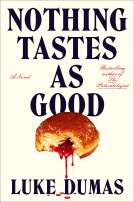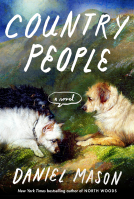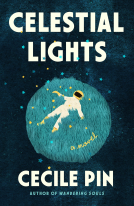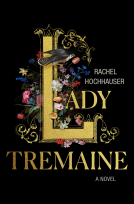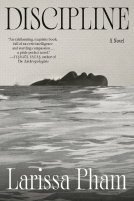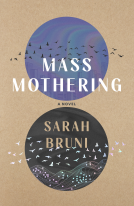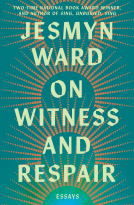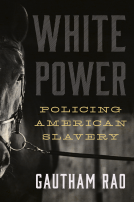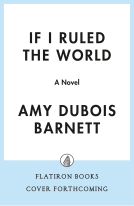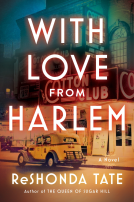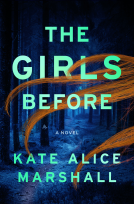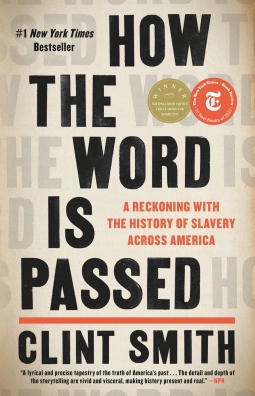
How the Word Is Passed
A Reckoning with the History of Slavery Across America
by Clint Smith
This title was previously available on NetGalley and is now archived.
Send NetGalley books directly to your Kindle or Kindle app
1
To read on a Kindle or Kindle app, please add kindle@netgalley.com as an approved email address to receive files in your Amazon account. Click here for step-by-step instructions.
2
Also find your Kindle email address within your Amazon account, and enter it here.
Pub Date Jun 01 2021 | Archive Date Sep 01 2021
Talking about this book? Use #HowtheWordIsPassed #NetGalley. More hashtag tips!
Description
This “important and timely” (Drew Faust, Harvard Magazine) #1 New York Times bestseller examines the legacy of slavery in America—and how both history and memory continue to shape our everyday lives.
Beginning in his hometown of New Orleans, Clint Smith leads the reader on an unforgettable tour of monuments and landmarks—those that are honest about the past and those that are not—that offer an intergenerational story of how slavery has been central in shaping our nation's collective history, and ourselves.
It is the story of the Monticello Plantation in Virginia, the estate where Thomas Jefferson wrote letters espousing the urgent need for liberty while enslaving more than four hundred people. It is the story of the Whitney Plantation, one of the only former plantations devoted to preserving the experience of the enslaved people whose lives and work sustained it. It is the story of Angola, a former plantation-turned-maximum-security prison in Louisiana that is filled with Black men who work across the 18,000-acre land for virtually no pay. And it is the story of Blandford Cemetery, the final resting place of tens of thousands of Confederate soldiers.
A deeply researched and transporting exploration of the legacy of slavery and its imprint on centuries of American history, How the Word Is Passed illustrates how some of our country's most essential stories are hidden in plain view—whether in places we might drive by on our way to work, holidays such as Juneteenth, or entire neighborhoods like downtown Manhattan, where the brutal history of the trade in enslaved men, women, and children has been deeply imprinted.
Informed by scholarship and brought to life by the story of people living today, Smith's debut work of nonfiction is a landmark of reflection and insight that offers a new understanding of the hopeful role that memory and history can play in making sense of our country and how it has come to be.
Winner of the National Book Critics Circle Award for Nonfiction
Winner of the Stowe Prize
Winner of 2022 Hillman Prize for Book Journalism
A New York Times 10 Best Books of 2021
Advance Praise
"In reexamining neighborhoods, holidays and quotidian sites, Smith forces us to reconsider what we think we know about American history." —Time
"Smith tells his stories with the soul of a poet and the heart of an educator. Smith’s ambitious book is fueled by a humble sense of duty: he sought the wisdom of those who tell of slavery’s legacy “outside traditional classrooms and beyond the pages of textbooks”; public historians who “have dedicated their lives to sharing this history with others.” Smith channels the spirit of Toni Morrison here; the writer as one to pass on the word so that it is never forgotten." —The Millions
“How the Word Is Passed is a necessary, important, and totally engaging book.” —Publishers Weekly
“Clint Smith chronicles in vivid and meditative prose his travels to historical sites that are truth-telling or deceiving visitors about slavery. Humans enslaved Black people, and then too often enslaved history. But How the Word Is Passed frees history, frees humanity to reckon honestly with the legacy of slavery. We need this book.” —Ibram X. Kendi, National Book Award-winning and #1 New York Times bestselling author of How to Be an Anti-Racist and Stamped from the Beginning
“A work of moral force and humility, How the Word is Passed offers a compelling account of the history and memory of slavery in America. Writing from Confederate Army cemeteries, former plantations, modern-day prisons, and other historical sites, Clint Smith moves seamlessly between past and present, revealing how slavery is remembered and misremembered—and why it matters. Engaging and wise, this book combines history and reportage, poem and memoir. It is a deep lesson and a reckoning.” —Matthew Desmond, Maurice P. During Professor of Sociology and Pulitzer prize winning author of Evicted
Available Editions
| EDITION | Other Format |
| ISBN | 9780316492935 |
| PRICE | $30.00 (USD) |
| PAGES | 336 |
Links
Average rating from 43 members
Featured Reviews
This is one of those books I will be pressing into the hands of everyone I know. It’s a book going to the top of my #TeachBetterBooks list. It’s required reading.
In How the Word is Passed, Clint Smith visits historical sites that hold importance to the way we craft stories about slavery in this country (and beyond). Beginning in New Orleans and the Monticello plantation, he considers how the legacy of Thomas Jefferson still needs to be critically examined, and the unwilling of so many to complicate the narrative. His visit to Angola Prison reveals the replication of slavery and Jim Crow laws. At Whitney Plantation, he considers how the function of a plantation can change the narrative, while also questioning how the pressures of society and funding affect such a project. He wrestles with New York’s history in slavery and visits a confederate gathering. Traveling all the way to Goreè Island, the persistence of a European gaze on the history of enslavement in Senegal frames the experience of young Senegalese students reckoning with this history and the tourist destination/experience the buildings that held the enslaved.
What makes this book different and necessary is that Smith approaches storytelling with the deftness of a poet, immersing the reader in the physical and emotional detail of each of his visits. He critically examines who is telling what story: from the way they are dressed, to the specific language they use, to they way others react to them. He doesn’t take personal distance from any of these descriptions, rather, he demonstrates how history is an embodied experience through these descriptions and his own response to them. He allows us to follow the connections he makes from his scholarly training to other historical contexts as well moments of personal connection (which culminate in a beautiful epilogue with his grandparents). It’s deeply moving, bringing the complex and violent history of enslavement into today’s context.
In Smith’s striving to understand how the word about this history is passed—how it continued to specifically be crafted to conceal its truths in some places and the difficulty of that truth telling in others—he gifts the readers with the ability to see beyond the words we’ve been given and cultivates a desire to grasp the truth for ourselves.
Thank you.
Smith's book is in a class of its own. Such an intriguing, thought-provoking analysis on the lasting legacy of enslavement and how contemporary American deals with it. The book details Smith's visits to several sites around the country related to enslavement, from New York to Louisiana.
The strength of the book is in its accessibility. There have been other books written on the subject, and some that Smith even mentions within the pages of this book, but some are more academic. This book manages to fuse readability with the great commentary on those issues. For instance, Kevin Levin's book on the African American confederate myth is great research, but I don't see it being picked up by lots of casual readers and on book club lists. This book will be and should be.
The most fascinating chapter in the book was on Angola. As a history teacher, I have sought to make a connection between talking about enslavement, mass incarceration, and Angola; Smith provides a great overview and readable expose on the prison. It's worth picking up the book by itself.
For many, again, this will not be new information, but it is presented in a personable way that will allow for conversation and reflection. Smith does a great job explaining how people's emotions still carry weight regarding policy and attitudes in American society. He makes clear the long-term impact of such a horrible institution that after reading it is impossible to say that "it's time to move on"
 JENNIFER S, Librarian
JENNIFER S, Librarian
Read if you: Want a mesmerizing and unforgettable look at how slavery's impact continues to haunt this country.
As a Louisiana native and current Virginia resident, this immediately caught my attention. Smith visits and talks with tour guides (and visitors) at Monticello, Whitney Plantation, Angola Prison, a Confederate graveyard (as well as a Confederate Memorial Day program, which is one of the most harrowing parts of the book), a Juneteenth celebration in Texas, and the Wall Street section of New York. Readers are forced to consider both the history and parallels to current events at each landmark/event. This is poignant, eye-opening, shameful, and necessary reading.
Librarians/booksellers: This is deeply moving and poignant. A must-have for your contemporary issues/social justice collection.
Many thanks to Little, Brown and Company and NetGalley for a digital review copy in exchange for an honest review.
book is divided into an author’s note about memorializing slavery, a prologue distinguishing between history and nostalgia, chapter one on a plantation, chapter two in a prison, chapter three remembering the confederacy, chapter four on Juneteenth, chapter five on northeastern elites’ attempts to distance from slavery, chapter six on memorizing slavery in practice, and an epilogue entitled “I lived it” incorporating Smith’s own perspectives and reflections. Smith explains: “I travel to eight places in the United States as well as abroad to understand how each reckons with its relationship to the history of American slavery… a mix of plantations, prisons, cemeteries, museums, memorials, houses, historical landmarks, and cities.” Smith’s writing style is profound, and the book as a whole interrogates how and why America has a long road ahead grappling with legacies of enslavement. extraordinary work of antiracism, history, memory, and public history
 Laura D, Educator
Laura D, Educator
This book is a hard read, not because of subject matter or content, but because it makes me question everything that I ever knew. As a white southern woman, I learned a history that excluded the pain of the African race.
Please read this book.
In the final pages of How the Word Is Passed, Clint Smith writes that "It was as a teacher that I first began to fully account for the way the history of this country shaped the landscape of my students' communities...I tried to write the sort of book that I would have wanted to teach them." He has certainly written a book that I am excited to teach, and though I didn't know about Smith's prior life as an educator before reading it, I can't say that I'm surprised to hear that he spent time in the classroom. How the Word Is Passed is as powerful and clear in its execution as any nonfiction I've read—the kind of illuminating, transformative experience that only the best teachers can pull off.
Smith's project in the book is undeniably ambitious: in an effort to untangle the historical narratives about slavery that have shaped our current beliefs about race, he visits 8 sites that explicitly or implicitly relay this history. In physical spaces ranging from Monticello to Angola Prison, New York City's sidewalks to a museum in Senegal, he takes tours, reads plaques, studies statues, and asks questions in an attempt to understand how so many Americans reached adulthood without a basic understanding of the role that slavery played in America's creation, development, and present day.
I first learned of Smith through his poetry, and his poetic sensibility is evident in the time he takes to orient the reader in space and time through detailed descriptions of his visits to these locations. Part of his project seems to be to expose the way that learning about slavery is an embodied experience and not merely an academic one: horror, discomfort, and grief are inextricable to this history. Smith's descriptions of reaching his arms to span a death row cell in Angola or imagining his son in a neglected plantation cemetery reveal that engaging with America's history of chattel slavery requires emotional as well as intellectual engagement, and his perspective as a black man descended from enslaved people clarifies the stakes of teaching this history poorly. Many of the places he visits seem to assume a white gaze (a plantation museum offering flyers for a Memorial Day event hosted by the Sons of Confederate Veterans is perhaps the clearest example), and the way his presence disrupts the placating, ahistorical narratives offered by employees is even more powerful than the information he shares to dispel the myths they propagate. The result is a text that feels both historically and emotionally informative, powerful both in its research and in its language.
How the Word Is Passed is beautiful and challenging, carefully researched and bracingly clear. I hope everyone reads it (and then tells me, so we can talk about it!).
Thank you to NetGalley and Little, Brown and Company for the ARC.
 Nick K, Educator
Nick K, Educator
Congratulations to @clintsmithiii on this upcoming Tuesday’s release of How the Word Is Passed!
I took my time reading this galley, letting the history, the narrative, and the reflective nature of Clint Smith’s writing ruminate in my thoughts.
With the pen of a poet, Smith’s text melds investigative journalism, historiography, memoir, and travellogue in a manner that defies simple genre conventions. That he approaches a complex subject—historical sites and their complicated relationship to slavery—in a complex manner is a fitting choice.
Ultimately, Smith’s writing has compelled me to interrogate sites of memory within my own locale, in order to better seek truth through the questioning of narratives that are steeped in “nostalgia.”
As an English teacher, I would love to supplement excerpts from this book in my units that currently feature August Wilson’s The Piano Lesson and Elie Wiesel’s Night, as my students—in their study of time, place, and memory—would benefit from Smith’s perspective and the questions he poses in How the Word is Passed. After reading the galley, I preordered a hardcover copy for my library.
Thanks to @netgalley for the galley, and thank you to @librofm for the pre-release audiobook.
Pre-order a copy today, or pick up a copy this Tuesday!
 Anna I, Reviewer
Anna I, Reviewer
In How the Word Is Passed, Clint Smith tells the stories of places where slaves have lived in the US. Traveling to six places in the U.S. and one on the western coast of Africa, each with a distinct connection to slavery, including his home state of Louisiana, Thomas Jefferson’s Monticello, New York City and the island of Gorée, Senegal. Smith carefully mixes factual and contemporary details to tell the stories of enslaved people. He also provides critical context for the various forms of exploitation practiced by these individuals. He begins his book at Monticello, the home of Thomas Jefferson. There, he learns about Jeffersons ownership of over 400 enslaved people. He also learns about their lives and the business strategies used by slave owners.
"The Whitney Plantation," Michael Lewis depicts the horrific event that occurred after the Louisiana slave rebellion in 1811. Smith talks about how the slave trade was continued through the prison labor contract leasing system, which is what happened at Angola. At Blandford Cemetery in Virginia, Smith confronts the myth of the Lost Cause, which some Southerners have made. He shows how thoroughly the historical record disproves their assumptions.
The contrast between the contemporary image and the historical legacy is stark and striking in New York's financial district. Slavery in America's financial capital dates back to the time of the American Revolution. In this beautiful epilogue, the author talks about his grandfather and grandmother, who were both born into slavery. Like many of us, Smith was not taught about the full story of slavery in school. This book fills in the gaps. Thank you, Little Brown, for the gifted copy.
This book is phenomenal.
As an historical text, as an exemplar for accessible but still challenging nonfiction, as an essential argument for how history is alive whether we pay attention to it or not. I can't recommend it enough.
Thank you to NetGalley and the publisher for an eARC and Libro FM for the complimentary audiobook.
To keep this simple- this is probably the best history lesson I've ever gotten and am immediately figuring out how we get this into our history curriculum for next year.
This is an amazing work, and Smith stunningly blends a sharp historical focus with his poet's instincts for language. It's one of the most beautifully written nonfiction/historical works I've read in a long time, while its focus on the horrors of slavery and racism in this country and throughout the world leaves more than a lasting impression.
 Faith H, Reviewer
Faith H, Reviewer
“The history of slavery is the history of the United States. It was not peripheral to our founding; it was central to it. It is not irrelevant to our contemporary society; it created it. This history is in our soil, it is in our policies, and it must, too, be in our memories.”
The author is a poet, educator and scholar from New Orleans who describes his visits to several locations in the United States and Africa, each with a relationship to slavery. He uses each locale as a catalyst to discuss how these various places can inform us; how history can be passed on if we question and listen.
Monticello Plantation was his first stop. There, disturbingly, tours in the 1930s and 1940s were conducted by Black men dressed as slaves. Monticello now attempts to include a more complete picture of Thomas Jefferson than history books used to deliver. A current tour guide said “Slavery is an institution. In Jefferson’s lifetime it becomes a system. So what is this slave system? It is a system of exploitation, a system of inequality and exclusion, a system where people are owned as property and held down by physical and psychological force, a system being justified even by people who know slavery is morally wrong. By doing what? Denying the very humanity of those who are enslaved solely on the basis of the color of their skin.” They also now include discussion of Sally Hemmings and her descendants.
In the United States, the author also visited: Whitney Plantation, whose primary focus is on the enslaved people who lived there; Angola Prison, built on a plantation; Blandford Cemetery, where 30,000 Confederate soldiers are buried, including a discussion of the 11 states that still observe Confederate holidays and observances like Confederate Memorial Day and Robert E. Lee Day (his birthday is celebrated on the same day as Martin Luther King Jr Day in Alabama and Mississippi); Galveston, Texas and history of Juneteenth; New York City, including it’s role in the slave trade; and the Museum of African American History, that evoked the memories of his elderly grandparents.
The only African location was Gor e Island in Senegal. It’s actual significance to the transatlantic slave trade has been disputed, but it is still a place that has major impact. “When I stood in the room in the House of Slaves that sat adjacent to the ocean, when I opened my arms and touched its wet stone walls, did it matter exactly how many people had once been held in that room? Or was it more important that the room pushed me into a space of reflection on what the origins of slavery meant? When I bent down and crawled inside that small space where I had been told enslaved people who resisted were held, when the darkness of that hole washed itself over me, did it matter whether enslaved people had actually been held there or did it matter that my sense of what bondage meant for millions of people had been irreversibly heightened? Can a place that misstates a certain set of facts still be a site of memory for a larger truth?
The author writes well. Most of the time the book read like history although more personal and less dry than history books, but sometimes the poet in him came out, especially in his use of repetition to make a point. This was a very good book and I would read more by him.
I received a free copy of this book from the publisher.
 Kate B, Librarian
Kate B, Librarian
How the Word is Passed is a super-accessible tour of different places in the USA (and one abroad) that tell necessary stories about the history of this country and slavery, and how we understand them. Places include Monticello, Angola Prison, Galveston Island, New York City, etc. Even those who think they already know the history of these places are still likely to find new details or fresh perspectives on the events that defined them.
If you're not likely to pick up a thick history book, but you want to better understand American slavery and why it still echoes today, choose this book.
This book is one of the most important things you could read right now. Clint Smith visits places like plantations, prisons, and New York City to see how different sites and organizations are dealing with their history of slavery and racism. He connects the past to the present, and shows how this country was founded and built on slavery, and how this inequality continues on. And he shows how critical it is that we change the way we teach children about slavery, and the stories we tell about slavery and the United States.
While the book deals with serious historical topics, it is also a story about his personal experiences visiting these places, and it flows like a narrative in many ways. Smith is a beautiful writer and poet, and this book is never dry or boring in any way. I felt fully captivated by it in a way that feels rare in nonfiction (outside of memoirs).
I learned so much from this book—so much that I wish was taught to me in school, that I wish was taught to everyone. I learned history that informs my opinions on mass incarceration, the Civil War, constitutional law, Wall Street, the Emancipation Proclamation, capitalism, colonization, and more. I took a lot of notes (and screenshots) while reading this book, and I don't know where to begin trying to include them in a review like this. But here are a couple quotes that stood out to me:
"oppression is never about humanity or lack thereof. It is, and always has been, about power."
"In 1863, when the Emancipation Proclamation was signed, Black Americans owned only 0.5 percent of the total wealth in the United States. Today, that number has barely increased: Black people own about 1-1.5 percent of the nation's wealth. Despite the role Black Americans played in generating this country's wealth, they don't have access to the vast majority of it."
"I do not yet have all the words to discuss a crime that is still unfolding."
I normally say things like "people interested in (blank) should read this," or, "I would highly recommend this book to anyone," but this time I'm going to directly recommend this book to you. You, specifically, whoever is reading this—you should read How the Word Is Passed by Clint Smith, as soon as possible.
Thank you to Netgalley and Little, Brown and Company for the chance to review this ARC.
 Librarian 804685
Librarian 804685
As a young white woman born with privilege, I cannot possibly express how much I needed this book and how my views have shifted. The author’s empathy and patience was noticed and appreciated as he slowly walked us through all our misunderstandings and preconceived notions and helped overcome what was clearly a serious lack of education due to whitewashed history. His conversation with his grandparents at the end was thought provoking as well. I can trace my European lineage back to the 1400s.
Would not hesitate for a moment to recommend.
Readers who liked this book also liked:
Peter J. Verovšek
Biographies & Memoirs, Nonfiction (Adult), Politics & Current Affairs
ReShonda Tate
General Fiction (Adult), Historical Fiction, Multicultural Interest
